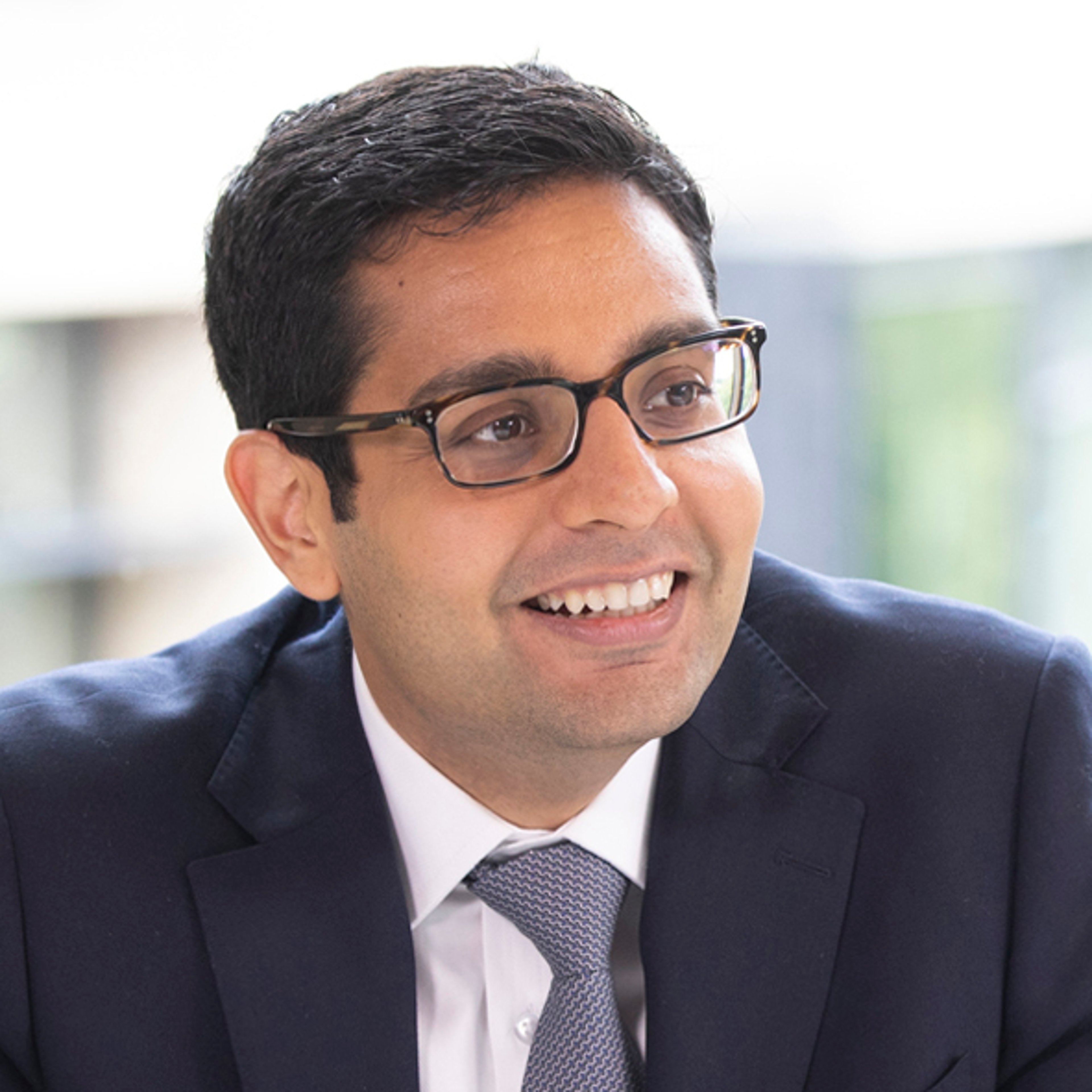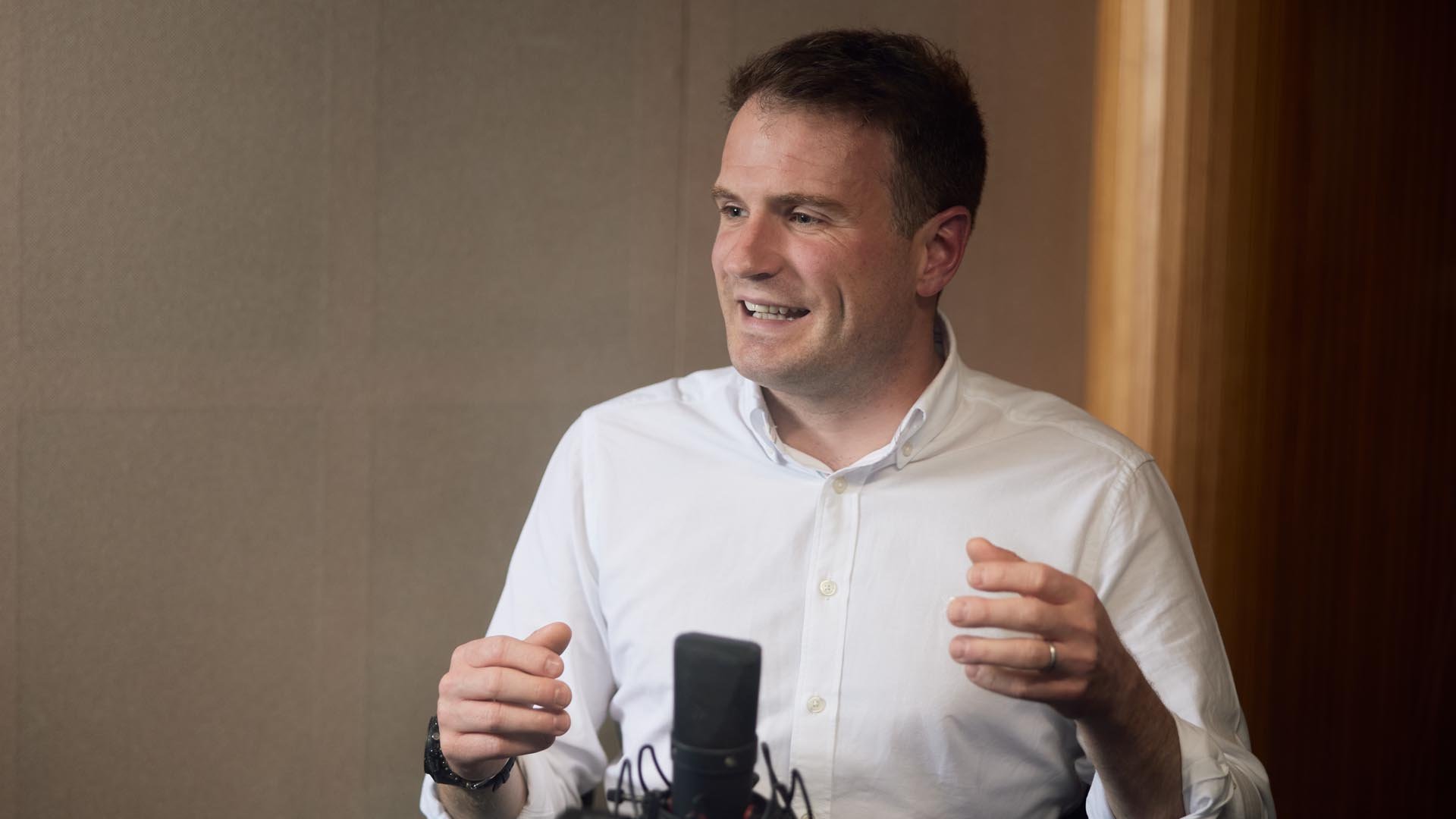
There’s a two-hour flight from Beijing to Pyongyang that transports you decades back in time. I once boarded it for a weeklong trip to North Korea. Nothing in the city had changed since about 1950. The five-lane highway to the hotel had more people dragging suitcases than cars. The elevators, the subway trains, the televisions: everything looked to me like it belonged in a museum. Decades of isolation from much of the world had seemingly halted progress, leaving the country frozen in a kind of time bubble.
But North Korea is an exception. While visiting other places may also evoke a sense of having jumped back through the years, there’s typically a perception that things are changing and, to a certain extent, catching up. And this gives rise to the use of ‘time travel’ as a tool when looking for promising investments in emerging markets – observing the state of play and then mentally jumping ahead to how conditions are likely to develop based on experiences from elsewhere.
Advancing countries lie on a spectrum of growth. At one end are poor nations like Malawi. At the other is South Korea, which was recently formally reclassified as being a ‘developed economy’ by the UN Conference on Trade and Development. By looking at how those towards the richer end got to that position, we can sometimes get a glimpse of the others’ future. So if South Korea today is what India might look like in 30 years’ time, understanding its growth journey can help us predict how India might change.

Past performance
Similar thinking is often applied within countries too. When sizing the market opportunity for companies like Meituan and Zomato, which provide food delivery services in China and India, we look at how things played out in the larger, more advanced cities to predict what might happen in smaller towns as they mature.
This type of thinking can work. As per capita income rises, there is a relatively predictable sequence of things people want: heating, then branded shampoos, then smartphones, then insurance etc. Having seen this sequence unfold in other countries or cities helps us predict how strong consumer brands might perform as they expand to new markets.
Infrastructure also follows a pattern. As countries grow they need more roads, ports and energy. We had observed the rollout of city gas networks in China, and judged India to be at an earlier stage of a similar expansion. Within three years, Indraprastha, an Indian gas distributor, saw its shares almost double in price.
So forecasting the future by mapping one place’s progress to another can pay off. But it can also mislead when an emerging market diverges from the path followed by its more developed counterparts.
Online shopping illustrates this danger. Ecommerce penetration in China, for instance, reached Western levels but then kept rising. This was driven by the sprawling size and congestion of Chinese cities and the absence of a well-developed physical retail infrastructure. As Alibaba’s founder Jack Ma put it, ecommerce was the ‘dessert’ in the US, where retailers like Wal-Mart existed, but the ‘main course’ in China, where they did not. Analysts who fixated on developed markets missed this nuance and the outsized returns it unlocked.

Emerging nation champions
In fact, this type of deviation from past growth is becoming increasingly common. In the second half of the 20th century, the US and Japan drove many of the most disruptive innovations. New technologies were born in places like Bell Labs in New Jersey, HP’s offices in Silicon Valley and Sony’s Tokyo research centre before spreading out to the world. You could essentially predict the rise of new industries in emerging markets from their rate of diffusion from more developed nations.
That has changed. Samsung and TSMC, for instance, are no longer the poor man’s Apple or Intel. The South Korean and Taiwanese firms are on the bleeding edge of research.
Across industries like ecommerce, digital payments, social media and gaming, firms like Korea’s Kakao, Brazil’s Stone, India’s Josh and Poland’s CD Projekt are setting the standard for innovation. Their prospects can no longer be predicted by simple reference to their Western peers.
The nature of innovation itself is also changing. Emerging economies face unique challenges. A new generation of technology firms are now solving these local problems and then exporting their learnings to the rest of the world.
Take Lenskart. This Indian eyecare company is tackling a huge problem: hundreds of millions of Indians have poor eyesight but very few can afford glasses. Lenskart reengineered vision testing, and how glasses and lenses are made. It has thus dramatically reduced the cost of vision correction and won a large share of India’s eyecare market. Now, having honed its craft in India’s challenging terrain, the firm is taking the fight to global giants like Luxottica with a target of becoming the top-selling eyeware platform in Southeast Asia and the Middle East by 2023.
Meesho is another company solving a local challenge. This Indian ecommerce start-up blends the business models of Shopify and Pinduoduo to bring online shopping to poorer Indians. One of its growth engines is the large proportion of highly motivated female resellers. Only 21 per cent of Indian women work in the formal economy, according to the World Bank. Many of the young, ambitious ones who don’t have started small businesses on social media. Meesho saw an opportunity to help them and, as a result, grew from three million resellers last year to more than 15 million today. Only in an economy with such a large, ambitious and underused labour pool could Meesho have grown that fast.
So time travel as an investment tool can be a useful but blunt instrument. As emerging economies forge very different paths forward, we have to be even more selective in applying it. It will take ever more creativity and imagination to predict the future and that makes emerging markets investing more difficult, but also more exciting and, perhaps, more lucrative.
Important Information
Baillie Gifford & Co and Baillie Gifford & Co Limited are authorised and regulated by the Financial Conduct Authority (FCA). Baillie Gifford & Co Limited is an Authorised Corporate Director of OEICs.
Baillie Gifford Overseas Limited provides investment management and advisory services to non-UK Professional/Institutional clients only. Baillie Gifford Overseas Limited is wholly owned by Baillie Gifford & Co. Baillie Gifford & Co and Baillie Gifford Overseas Limited are authorised and regulated by the FCA in the UK.
Persons resident or domiciled outside the UK should consult with their professional advisers as to whether they require any governmental or other consents in order to enable them to invest, and with their tax advisers for advice relevant to their own particular circumstances.
Europe
Baillie Gifford Investment Management (Europe) Limited provides investment management and advisory services to European (excluding UK) clients. It was incorporated in Ireland in May 2018 and is authorised by the Central Bank of Ireland. Through its MiFID passport, it has established Baillie Gifford Investment Management (Europe) Limited (Frankfurt Branch) to market its investment management and advisory services and distribute Baillie Gifford Worldwide Funds plc in Germany. Similarly, it has established Baillie Gifford Investment Management (Europe) Limited (Amsterdam Branch) to market its investment management and advisory services and distribute Baillie Gifford Worldwide Funds plc in The Netherlands. Baillie Gifford Investment Management (Europe) Limited also has a representative office in Zurich, Switzerland pursuant to Art. 58 of the Federal Act on Financial Institutions (‘FinIA’). It does not constitute a branch and therefore does not have authority to commit Baillie Gifford Investment Management (Europe) Limited. It is the intention to ask for the authorisation by the Swiss Financial Market Supervisory Authority (FINMA) to maintain this representative office of a foreign asset manager of collective assets in Switzerland pursuant to the applicable transitional provisions of FinIA. Baillie Gifford Investment Management (Europe) Limited is a wholly owned subsidiary of Baillie Gifford Overseas Limited, which is wholly owned by Baillie Gifford & Co.
China
Baillie Gifford Investment Management (Shanghai) Limited 柏基投资管理(上海)有限公司(‘BGIMS’) is wholly owned by Baillie Gifford Overseas Limited and may provide investment research to the Baillie Gifford Group pursuant to applicable laws. BGIMS is incorporated in Shanghai in the People’s Republic of China (‘PRC’) as a wholly foreign-owned limited liability company with a unified social credit code of 91310000MA1FL6KQ30. BGIMS is a registered Private Fund Manager with the Asset Management Association of China (‘AMAC’) and manages private security investment fund in the PRC, with a registration code of P1071226.
Baillie Gifford Overseas Investment Fund Management (Shanghai) Limited 柏基海外投资基金管理(上海)有限公司(‘BGQS’) is a wholly owned subsidiary of BGIMS incorporated in Shanghai as a limited liability company with its unified social credit code of 91310000MA1FL7JFXQ. BGQS is a registered Private Fund Manager with AMAC with a registration code of P1071708. BGQS has been approved by Shanghai Municipal Financial Regulatory Bureau for the Qualified Domestic Limited Partners (QDLP) Pilot Program, under which it may raise funds from PRC investors for making overseas investments.
Hong Kong
Baillie Gifford Asia (Hong Kong) Limited 柏基亞洲(香港)有限公司 is wholly owned by Baillie Gifford Overseas Limited and holds a Type 1 and a Type 2 license from the Securities & Futures Commission of Hong Kong to market and distribute Baillie Gifford’s range of collective investment schemes to professional investors in Hong Kong. Baillie Gifford Asia (Hong Kong) Limited 柏基亞洲(香港)有限公司 can be contacted at Suites 2713–2715, Two International Finance Centre, 8 Finance Street, Central, Hong Kong. Telephone +852 3756 5700.
South Korea
Baillie Gifford Overseas Limited is licensed with the Financial Services Commission in South Korea as a cross border Discretionary Investment Manager and Non-discretionary Investment Adviser.
Japan
Mitsubishi UFJ Baillie Gifford Asset Management Limited (‘MUBGAM’) is a joint venture company between Mitsubishi UFJ Trust & Banking Corporation and Baillie Gifford Overseas Limited. MUBGAM is authorised and regulated by the Financial Conduct Authority.
Australia
Baillie Gifford Overseas Limited (ARBN 118 567 178) is registered as a foreign company under the Corporations Act 2001 (Cth) and holds Foreign Australian Financial Services Licence No 528911. This material is provided to you on the basis that you are a ‘wholesale client’ within the meaning of section 761G of the Corporations Act 2001 (Cth) (‘Corporations Act’). Please advise Baillie Gifford Overseas Limited immediately if you are not a wholesale client. In no circumstances may this material be made available to a ‘retail client’ within the meaning of section 761G of the Corporations Act.
This material contains general information only. It does not take into account any person’s objectives, financial situation or needs.
South Africa
Baillie Gifford Overseas Limited is registered as a Foreign Financial Services Provider with the Financial Sector Conduct Authority in South Africa.
North America
Baillie Gifford International LLC is wholly owned by Baillie Gifford Overseas Limited; it was formed in Delaware in 2005 and is registered with the SEC. It is the legal entity through which Baillie Gifford Overseas Limited provides client service and marketing functions in North America. Baillie Gifford Overseas Limited is registered with the SEC in the United States of America.
The Manager is not resident in Canada, its head office and principal place of business is in Edinburgh, Scotland. Baillie Gifford Overseas Limited is regulated in Canada as a portfolio manager and exempt market dealer with the Ontario Securities Commission (‘OSC’). Its portfolio manager licence is currently passported into Alberta, Quebec, Saskatchewan, Manitoba and Newfoundland & Labrador whereas the exempt market dealer licence is passported across all Canadian provinces and territories. Baillie Gifford International LLC is regulated by the OSC as an exempt market and its licence is passported across all Canadian provinces and territories. Baillie Gifford Investment Management (Europe) Limited (‘BGE’) relies on the International Investment Fund Manager Exemption in the provinces of Ontario and Quebec.
Oman
Baillie Gifford Overseas Limited (‘BGO’) neither has a registered business presence nor a representative office in Oman and does not undertake banking business or provide financial services in Oman. Consequently, BGO is not regulated by either the Central Bank of Oman or Oman’s Capital Market Authority. No authorization, licence or approval has been received from the Capital Market Authority of Oman or any other regulatory authority in Oman, to provide such advice or service within Oman. BGO does not solicit business in Oman and does not market, offer, sell or distribute any financial or investment products or services in Oman and no subscription to any securities, products or financial services may or will be consummated within Oman. The recipient of this material represents that it is a financial institution or a sophisticated investor (as described in Article 139 of the Executive Regulations of the Capital Market Law) and that its officers/employees have such experience in business and financial matters that they are capable of evaluating the merits and risks of investments.
Qatar
The materials contained herein are not intended to constitute an offer or provision of investment management, investment and advisory services or other financial services under the laws of Qatar. The services have not been and will not be authorised by the Qatar Financial Markets Authority, the Qatar Financial Centre Regulatory Authority or the Qatar Central Bank in accordance with their regulations or any other regulations in Qatar.
Israel
Baillie Gifford Overseas is not licensed under Israel’s Regulation of Investment Advising, Investment Marketing and Portfolio Management Law, 5755–1995 (the Advice Law) and does not carry insurance pursuant to the Advice Law. This material is only intended for those categories of Israeli residents who are qualified clients listed on the First Addendum to the Advice Law.
10905 10002626





